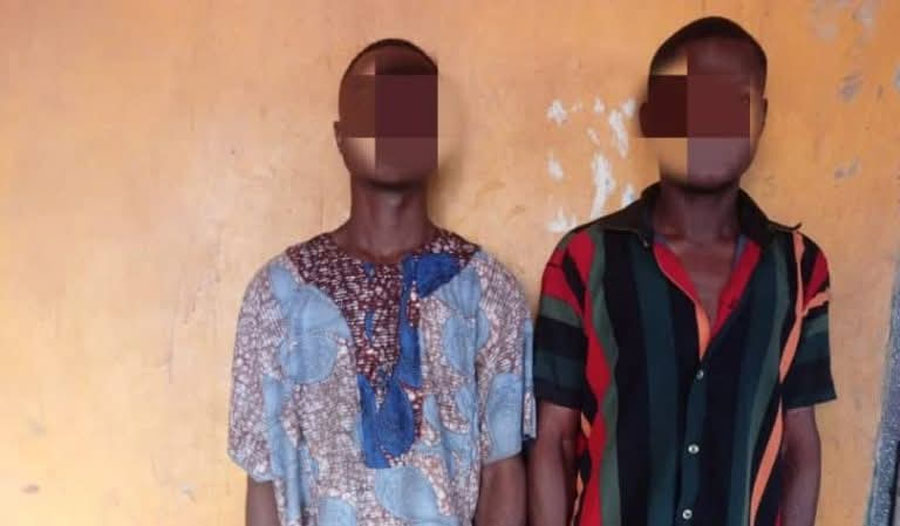metro
Nigeria gets World Bank $1.5bn loan

Nigeria gets World Bank $1.5bn loan
The World Bank has disbursed a $1.5 billion loan to Nigeria under the Reforms for Economic Stabilisation to Enable Transformation (RESET) Development Policy Financing initiative.
The loan, approved on June 13, 2024, was released in record time following Nigeria’s implementation of critical reforms, including the removal of fuel subsidies and comprehensive tax policies.
This fast disbursement contrasts with other loan programmes, which typically experience delays due to slow or partial implementation of conditions.
For instance, the World Bank has also disbursed $1.88 million of a $750 million loan for the Accelerating Resource Mobilization Reforms (ARMOR) project, approved alongside the RESET programme.
Loan disbursement timeline
- The first tranche of $750 million, a credit facility under the International Development Association (IDA) with a 12-year maturity and six-year grace period, was disbursed on July 2, 2024.
- The second tranche of $750 million, issued by the International Bank for Reconstruction and Development (IBRD) with a 24-year maturity and 11-year grace period, followed in November 2024.
The World Bank document read: “This document summarizes the progress made under the Reforms for Economic Stabilization to Enable Transformation Development Policy Financing for the Federal Republic of Nigeria (Borrower or Recipient), which was approved by the Executive Directors on June 13, 2024.
READ ALSO:
- S’Korea orders probe after deadly plane crash
- Oldest ex-US President Jimmy Carter dies at 100
- Umahi beats Obi, others to emerge Ohanaeze’s Igbo Man of the Year
“The DPF is a standalone operation comprised of two tranches: (1) first tranche comprising US$750 million credit from the International Development Association (Association) (Shorter Maturity Loan terms with 12-year maturity and grace period of 6 years, Credit No. 7567-NG); and (2) second tranche comprising US$750million loan from the International Bank for Reconstruction and Development (Bank) (US dollar-denominated, commitment-linked loan with 24-year maturity and grace period of 11 years, Loan No.9683-NG). The Financing Agreement and Loan Agreement were signed and declared effective on June 19, 2024 and June 26, 2024, respectively. The first tranche was released on July 2, 2024.”
Key reform conditions
A major trigger for the second tranche was the removal of fuel subsidies. The reforms allowed petrol prices to reflect international market rates and exchange rates, effectively ending implicit subsidies that strained public finances.
The deregulation, which began in mid-2023, saw petrol prices increase more than fivefold, drawing praise for fiscal discipline but sparking criticism over the rising cost of living.
The World Bank commended the government for not only meeting the condition but exceeding expectations by fully deregulating the fuel market.
The document noted: “In terms of implementation, while the TRC [Tranche Release Conditions] formulation required introducing the change over a specified time-bound implementation period, the Borrower has moved ahead and made the change immediately, thereby overachieving the TRC in this respect.
“Effective October 2024, the price of PMS has been determined by the international market and the exchange rate set by the Central Bank of Nigeria.”
READ ALSO:
- Saraki betrayed me after helping him become Senate president – Ndume
- Atiku demands probe into ‘military’ parade for Tinubu’s son, Seyi
- Indian man sets wife ablaze for giving birth to three daughters
Additional reforms included the introduction of the Nigeria Tax Bill 2024, proposing a gradual increase in Value Added Tax (VAT) to 10% by 2025 and streamlining tax compliance processes.
The document read: “The Borrower has successfully carried out the program as outlined in the Letter of Development Policy, with progress along all areas supported by the DPF. Following the implementation of the reforms that constituted prior actions for the first tranche of the RESET DPF (disbursed on June 28, 2024), the Borrower continues to carry out the program as planned.
“The Borrower has prepared and submitted to the National Assembly on October 3, 2024, a comprehensive package of tax reforms, which not only reform the VAT regime but also simplify tax policy laws and tax administration.
“Reforms have also been implemented to fully deregulate the fuel market, ensuring that retail prices are determined by market conditions and opening the sector to competition. The authorities are following through on their commitment to cease deficit monetization, relying instead on standard debt instruments to finance the deficit.”
The government also submitted amendments mandating the use of the National Social Registry for social investment programmes.
Socioeconomic impact and relief measures
Despite commendations from the World Bank for exceeding reform targets, the impact of these changes has sparked public dissent. Fuel subsidy removal has led to surging transportation and living costs, triggering protests in major cities like Lagos, Kano, and Abuja.
To cushion the effects, the Federal Government introduced N25,000 monthly cash transfers for 15 million vulnerable households.
However, only about four million households have benefited so far, falling significantly short of the target. Efforts are also underway to promote compressed natural gas (CNG) as a cheaper fuel alternative, with plans to convert over one million vehicles in three years.
Nigeria gets World Bank $1.5bn loan
metro
Man steals goat for daughter’s naming in Ogun

Man steals goat for daughter’s naming in Ogun
A suspect, Akintoye Wariss, has been arrested by the Odeda Division of the Ogun State Police Command for allegedly stealing and slaughtering a Savannah he-goat, worth N200,000, for his daughter’s naming ceremony.
Omolola Odutola, the spokesperson for the police command, confirmed the arrest, which occurred on January 2, 2024, in the Odeda region of Ogun State. Waris was arrested alongside an accomplice, Ajayi Yusuf.
The two men are accused of breaking into a farm in the area to steal the goat. They reportedly waited until December 25, when the farm owner, identified only as Mark, had taken his cattle out to graze.
READ ALSO:
- Privatise Port Harcourt, Warri refineries, PETROAN tells FG
- 2027: Kwankwaso slams northern elders over choice of candidates
- How I escaped death after my 14-year-old bride poisoned my meal – Jigawa man
Odutola shared that when Mark returned and discovered one of the goats missing, a search was launched in the community. Villagers soon reported seeing the suspects riding a motorcycle with the missing goat and heading toward Olodo town.
The police acted swiftly on the tip-off, deploying detectives who successfully captured the suspects early on January 2, 2025.
During questioning, the suspects allegedly admitted to the crime, detailing how they stole, transported, and slaughtered the he-goat on December 27, 2024. They also revealed that the goat was used for the feast at Waris’s daughter’s naming ceremony in Olodo.
The two suspects are now in police custody and are undergoing further investigation at the Divisional Crime Branch. Odutola assured the public that the suspects would face prosecution once the investigation concludes and that any new updates on the case would be shared accordingly.
Man steals goat for daughter’s naming in Ogun
metro
Privatise Port Harcourt, Warri refineries, PETROAN tells FG

Privatise Port Harcourt, Warri refineries, PETROAN tells FG
The Petroleum Products Retail Outlet Owners Association of Nigeria (PETROAN) has requested the Federal Government to privatise the Port Harcourt and Warri Refineries in 2025 to firms for efficiency and reduction of government spendings.
It made the request in a document titled: “To whom It may concern,” which The Nation obtained from Abuja on Saturday.
The document was signed by the National President, Billy Hary; Secretary, Barr Adedibu Aderibigbe, and Public Relations Officer, Dr Joseph Obele.
In its recommendations, the association said: “Based on PETROAN’s observations, the following recommendations are made to
ensure the effectiveness and efficiency of the downstream sector in 2025:. “Privatization of Nigerian-Owned Refineries: Privatize Nigerian-owned refineries, such as the Warri and Kaduna refineries, to reputable private companies to improve efficiency and reduce government spending.”
It further noted that privatisation of the plants would foster a competitive market by encouraging new entrants and promoting a level playing field to prevent monopolies and ensure fair pricing.
It said it would enhance transparency and accountability.
READ ALSO:
- 2027: Kwankwaso slams northern elders over choice of candidates
- How I escaped death after my 14-year-old bride poisoned my meal – Jigawa man
- APC diaspora rejects group’s ranking Tinubu among most corrupt leaders
PETROAN also requested President Ahmed Tinubu to save the businesses of 10,000 oil and gas marketers with N100billion intervention.
This followed the perceived job losses due to the removal of the Premium Motor Spirit (PMS) petrol subsidy.
The document said: “PETROAN request for a grant of ₦100 billion from President Bola Tinubu to help prevent the closure of 10,000 marketers’ businesses.
” The request is in response to the threat of job losses that would result from the removal of the fuel subsidy.”
PETROAN also urged the government to address cross-border smuggling of petroleum products by collaborating
with neighbouring countries to strengthen border security and prevent
smuggling, and also utilize digital tracking systems to monitor petroleum
products from refineries to retail outlets.
The association further asked the government to prioritise local refineries’ access to crude oil to boost Nigeria’s refining capacity and reduce reliance on imported petroleum products.
Privatise Port Harcourt, Warri refineries, PETROAN tells FG
metro
How I escaped death after my 14-year-old bride poisoned my meal – Jigawa man

How I escaped death after my 14-year-old bride poisoned my meal – Jigawa man
A 34-year-old man has shared the story of how he narrowly escaped death while his friend lost his life after his 14-year-old bride poisoned their meal two days after their wedding.
Kamisu Haruna recounted that the incident occurred on December 22 at his home in Albasu village, Jahun Local Government Area of Jigawa State.
According to Haruna, after marrying Zahra’u Dauda on December 20 in Kiyawa Local Government Area, he brought his young bride to his residence.
Two days later, as the wedding guests had departed, Zahra’u reportedly sent some of her friends to deliver food to him and his companions around 10pm.
“On Sunday night (December 22), after the wedding guests had dispersed to their various homes, my friends were preparing to take me to the bride’s room. Suddenly, we saw her friends coming towards a nearby shop where we were sitting. They came with cooked spaghetti with beef and said the bride sent them to give us the food.
“While eating the food, we noticed a taste of chemicals and stopped eating, suspecting the food was poisoned. Then we started feeling stomach ache.
READ ALSO:
- APC diaspora rejects group’s ranking Tinubu among most corrupt leaders
- Tinubu to Enugu Gov: You’re a good thinker
- Sokoto offers 1,500 tricycles, motorcycles to riders at 80% discount
“We took milk, but our condition kept worsening. We were rushed to the hospital where my friend, Muhammad Alpha, was confirmed dead,” the groom narrated to a reporter who visited the village.
Haruna alleged that his wife had been influenced by her former lover, who he claimed supplied her with the poison.
“After the wedding in Kiyawa, she (the bride) told me she would go back to her town to collect her belongings. It was there that her former boyfriend gave her the poison and asked her to put it in my food,” he alleged.
The groom also denied accusations of coercing his bride into the marriage, maintaining that Zahra’u genuinely loved him but was misled by her ex-boyfriend due to her inexperience.
“Everyone can testify that we are true lovers. What happened is just our destiny and due to her little experience of life.
“She is still my wife even though her action led to the death of my friend. We prayed for the repose of his soul, and the law enforcement agencies should do justice for all of us,” Haruna said.
Jigawa State Police spokesperson, Lawan Adam, confirmed the incident, stating that Zahra’u, a resident of Bagata Gabas village, conspired with her former lover, 22-year-old Lawan Musa of Bagata Gabas Yamma village, to poison her husband’s food.
“The husband and his two friends ate the food together, and as a result, they both developed stomachaches.
“Victims were rushed to the hospital, where one of the groom’s friends was confirmed dead by the medical doctor on call. The case is under investigation,” the police spokesperson said.
How I escaped death after my 14-year-old bride poisoned my meal – Jigawa man
-

 metro2 days ago
metro2 days ago‘Deepen Shariah knowledge to curb misinformation’
-

 metro1 day ago
metro1 day agoYouths beat Osun monarch for appointing Imam
-

 metro2 days ago
metro2 days agoIlorin: Retired works controller murdered on New Year’s Day
-

 Business15 hours ago
Business15 hours agoPetrol price may crash to N500/litre, say marketers
-

 metro2 days ago
metro2 days agoTinubu’s refusal to honour Seyi’s pact with us disappointing – Nnamdi Kanu’s family
-

 metro2 days ago
metro2 days agoJealous husband stabs Bishop to death over allege affair with wife
-

 Business15 hours ago
Business15 hours agoMeta deletes AI accounts after backlash over posts
-

 metro2 days ago
metro2 days agoMosques should be research centres – Varsity don











